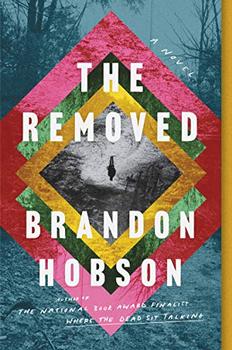Summary | Excerpt | Reviews | Beyond the Book | Readalikes | Genres & Themes | Author Bio

He said, "I guess he's gone, Maria."
I waited for him to look at me.
He said, "I wish he'd come home."
"Me, too," I said. "Let's go back to bed."
THAT NIGHT, unable to fall asleep, I sat at the dining room table with my notebook. I journaled intermittently, which had always helped ease my mind:
The bonfire is in five days. I have so much I need to do to prepare for it, but I worry Ernest can't handle it anymore. I want Edgar here. I don't want to lose him like we lost Ray-Ray.
I considered the complexities of time, how slowly and how quickly it moves. Fifteen sad years had passed since Ray-Ray died. We had started having the bonfire on the tenth anniversary of his death, and for the past five years it had become a way for us to get together and be honest with one another and focus on the importance of our family, our land. Even though Ernest and I had both grown up near here, I never felt such a strong connection to the land around us until we started doing the bonfires. But with Ernest's declining Alzheimer's over the past year, I feared this would be the last bonfire. Our very first bonfire, which was Ernest's idea, he and Edgar went out to gather firewood together. They came back laughing about something Edgar had seen, a stick or twig he had mistaken for a snake, which had made him drop the firewood and run. Ernest kept laughing about that, I remember. And as we stood around the bonfire, reflecting on what we were thankful for, Ernest had said: "I'm thankful we can laugh even in times of sadness." This was our gift to Ray-Ray, our way of understanding and making healing and sadness feel eminently right.
This is my hope, I wrote in my journal that first year, that the bonfire will continue as a memorial for Ray-Ray and to mourn for others who pass away in the years to come.
Edgar had made it to the bonfire every year, and since the intervention had failed, I hoped this year's bonfire would be one more chance to help him back on the right path. I wouldn't give up on him. I was consumed by an emptiness I tried to fill however I could: through prayer, meditation, journaling. For the first time in many years, I struggled to sleep at night, worried about Edgar and Ernest. At such times I always felt that an epiphany was about to come to me, but I was never able to put my finger on it. One night some months earlier, thinking Ernest had quit breathing in his sleep, I turned over in bed to see that he was in fact awake, staring up at the ceiling with the fear of someone who had been struck repeatedly across the face. "I dreamed about dead people," he whispered, immediately closing his eyes and falling back asleep. The next morning Ernest had no memory of it, but the moment haunted me.
When I did manage to sleep, I often dreamed about Ray-Ray as a young child, maybe five or six years old. I never dreamed of him as a teenager, even though he was fifteen when he passed. In these dreams he would be missing, and I couldn't find him. Ernest and I would show up at a gymnasium to pick him up, and he wouldn't be there. Or we would be at a crowded park somewhere, searching for him. Those dreams were the hardest.
I had another recurring dream, about a man carrying an owl. I wondered who he was, this stranger. He was silent and kind, offering me beads or a piece of warm bread, a cup of dark wine to drink. There was nothing romantic or attractive about this, and certainly nothing suggestive about my feelings toward him. If anything, he appeared as a traveling monk, maybe a spiritual man, dressed in ragged clothes and holding the owl on his arm.
"It sounds like you're dreaming about Skili," Irene once told me. "He's a ghost or bad spirit. He brings bad news."
But I didn't tell anyone about my dreams of Ray-Ray appearing in the form of a bird. When I woke and sat outside on the back deck in the mornings, sometimes a bird would fly near and land in the grass, cock its head as if watching me. It made me miss him terribly.
Excerpted from The Removed by Brandon Hobson. Copyright © 2021 by Brandon Hobson. Excerpted by permission of Ecco. All rights reserved. No part of this excerpt may be reproduced or reprinted without permission in writing from the publisher.
Don't join the book burners. Don't think you are going to conceal faults by concealing evidence that they ever ...
Click Here to find out who said this, as well as discovering other famous literary quotes!
Your guide toexceptional books
BookBrowse seeks out and recommends the best in contemporary fiction and nonfiction—books that not only engage and entertain but also deepen our understanding of ourselves and the world around us.